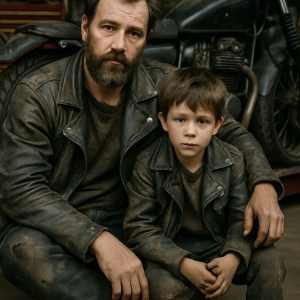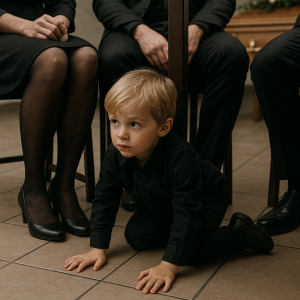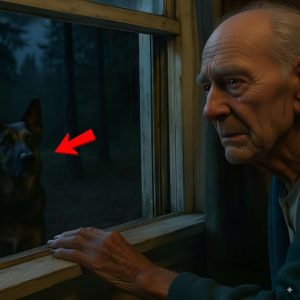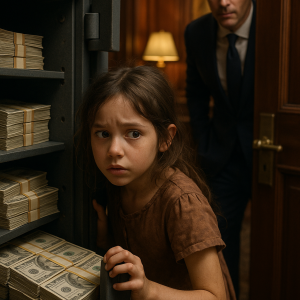Rich Women Mocked the Waitress’s ‘Poor Smell’—Seconds Later, Her Boyfriend Stood Up and Exposed a Truth That Silenced Them All”
The Night My Boyfriend Stood Up in a Restaurant—and Taught Everyone a Lesson They’ll Never Forget
It was our third month together, and Jack had promised me something special.
“Tonight’s not just dinner,” he said with that mischievous grin of his. “It’s… important.”
I spent hours getting ready, not because he asked me to, but because something about Jack always made me want to shine. By the time we arrived at the upscale restaurant, my heart was racing. Crystal chandeliers sparkled, violins played softly in the background, and waiters in crisp uniforms glided across the floor.
It felt like a dream.
We laughed, we talked, and when dessert arrived, I thought—this must be what happiness feels like.
But then… everything shifted.
At the table beside us, three women sat draped in luxury—diamond bracelets that could buy a house, handbags worth more than my car, and the kind of confidence that came from knowing the world bent to their whims.
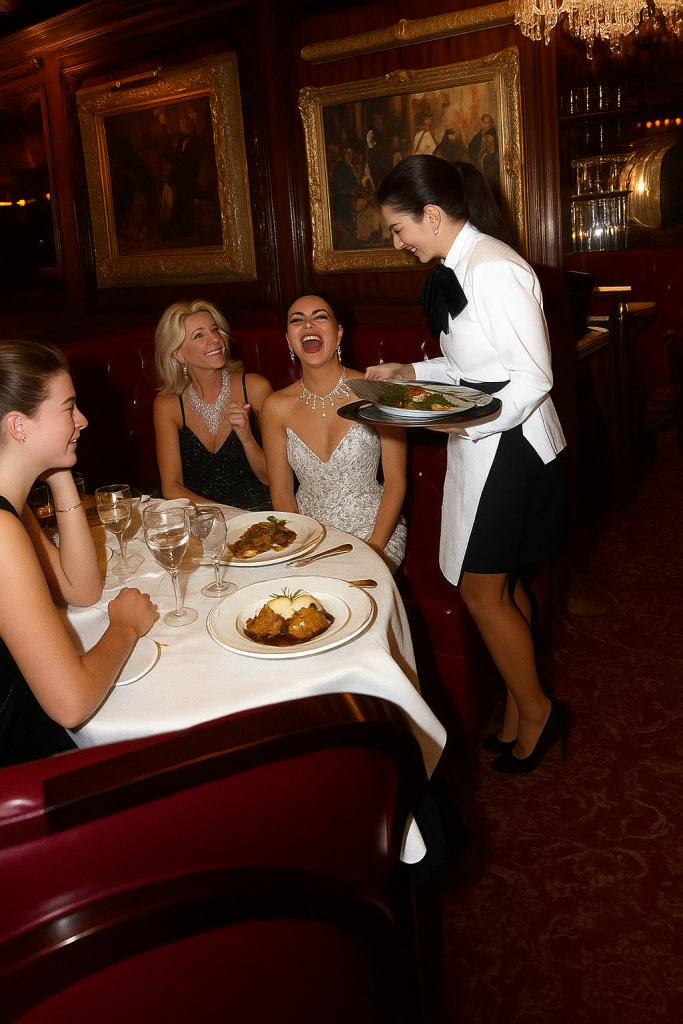
They were loud enough to draw stares, but no one dared say anything. And then, the waitress approached their table.
She was young, maybe early twenties. Her shoes were worn, her uniform slightly faded. But she carried herself with quiet grace. At least, she did—until the women decided to tear her apart.
“God, do you smell that?” one said, fanning herself with the menu. “She literally smells… poor. Like public transport. Does the owner really hire anyone these days?”
The second leaned forward with a smirk. “Forget the smell—look at those shoes. Scuffed beyond belief. Serving here and she can’t even manage proper shoes?”
The third tilted her head, voice dripping venom. “Probably living off tips. Maybe leftover breadsticks are her dinner.”
And then they laughed. Sharp. Cruel. The kind of laughter that cuts.
The waitress froze, her cheeks burning crimson as she set their plates down. Her hands trembled. For a moment, she opened her mouth to speak—but no words came. She swallowed them, along with her dignity, standing under the glow of the chandelier with sadness etched across her face.
I felt my stomach turn. Around us, the restaurant went silent, every patron suddenly fascinated by their food. No one wanted to get involved.
My fork slipped from my hand and clanged onto the plate. I looked at Jack, hoping he’d meet my eyes, hoping he’d say something, anything.
Instead, he pushed back his chair.
The sound scraped like thunder through the stillness.
Jack stood tall, adjusting his jacket, and walked straight to their table. His steps were deliberate, calm, yet filled with a weight that made the women’s laughter fade.
“Excuse me, ladies,” he said, his voice even but cutting through the room. “I couldn’t help overhearing.”
The one with the diamonds sneered. “Oh? And what business is it of yours?”
Jack’s gaze didn’t waver. He turned to the waitress, who stood frozen, clutching her tray like a shield. “Miss,” he said gently, “would you mind if I asked you something?”
She blinked, startled. “Uh… sure?”
“Would you tell everyone here,” he continued, his voice louder now, “how many hours you worked this week?”
The waitress shifted nervously. “Fifty-six,” she whispered.
“And how many double shifts?”
“Four.”
Jack nodded. Then he turned, his eyes locking on the women. “Fifty-six hours. Four doubles. And still, she shows up here, serving people like you with a smile.”
The diamond-clad woman scoffed. “What’s your point?”
“My point,” Jack said, leaning in, “is that what you just did? Mocking her shoes, her smell, her livelihood? That says more about you than it does about her.”
The second woman rolled her eyes. “Please. Don’t romanticize poverty. We’re just being honest.”
Jack’s jaw tightened, but his voice stayed calm. “Honest? No. Cruel. And let me tell you something about cruelty—it’s usually the mask people wear to hide their own emptiness.”
A murmur rippled through the restaurant. The women shifted uncomfortably, but Jack wasn’t finished.
He pulled his wallet from his pocket, slid out his black card, and placed it gently into the waitress’s trembling hand.
“Run the check on this,” he said. “And add a tip big enough that she can buy herself ten new pairs of shoes if she wants. Consider it an investment in kindness—since clearly, it’s in short supply tonight.”
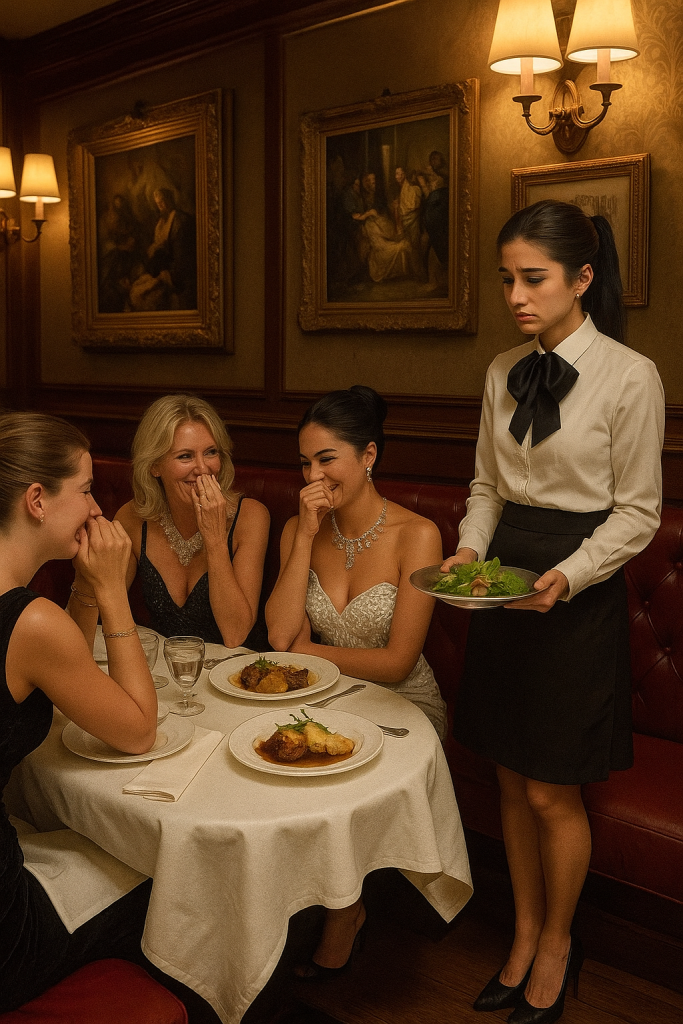
Gasps echoed across the room. One of the women’s faces turned scarlet, another’s pale. But Jack’s words had already cut deeper than any diamond could shine.
The waitress’s eyes filled with tears. “Sir, I… I don’t know what to say.”
“Say nothing,” Jack replied softly. “Just know you’re worth more than their laughter.”
For a moment, time hung suspended. Then, quietly, people began to clap. A soft ripple that grew into a wave until the entire restaurant was applauding.
The three women shrank back into their chairs, suddenly small in all their wealth.
Jack returned to our table, sat down as if nothing had happened, and picked up his fork. “Where were we?” he asked with a smile.
I couldn’t speak. My heart pounded in my chest, not from embarrassment, but from awe. That night, I realized something important: Jack wasn’t just the man I was dating. He was the man who understood what it meant to respect others, no matter who they were.
Later that evening, as we walked hand in hand toward his car, I finally asked, “How did you know what to say? You were so calm… so certain.”
Jack paused, his expression darkening.
“Because once, that was me,” he admitted quietly. “Years ago, before the job, before the suit—you would’ve found me bussing tables, wearing shoes with holes, praying no one noticed how I smelled after walking three miles to work. And people like them… they noticed. They laughed.”
He exhaled, his jaw tightening. “I promised myself if I ever saw it happen again, I’d make sure no one walked away feeling the way I did.”
My throat tightened. In that moment, I didn’t just admire him—I loved him.
That night, I learned two truths:
Cruelty is cheap. Kindness is priceless.
The most powerful people aren’t those draped in diamonds—they’re the ones who stand up when everyone else stays silent.
What would you have done if you were there that night—sat in silence like everyone else, or stood up like Jack?
